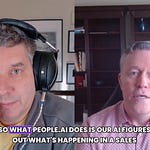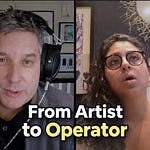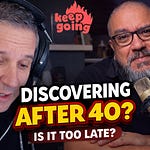I first spoke with Ehren Cruz and felt something I do not get often in this space, grounded optimism. He runs a retreat center north of Asheville and guides people through psilocybin journeys with a process that looks more like a rite of passage than a thrill ride.
Here is how he works. He starts with a real assessment. Meds, mental health history, trauma, and whether he is the right person to help. Then a month of preparation. Sleep, food, time off the treadmill, and intention. He teaches basic emotional regulation so you are not surprised by your own mind. Only then do you sit. Music, instruments, careful facilitation, and a room that feels safe. Afterward comes the hard part, landing the craft. What did you learn. What will you change. Who do you need to forgive. How will you embody that tomorrow morning.
If the language around psychedelics feels too soft, Ehren can meet you in plain English. He talks about neuroplasticity and the way a wider thalamic filter lets you consider ideas that your habitual self would ignore. He also talks about something older. Fungi as a living partner, not a static compound. You bring your healing intelligence. The medicine brings its own. The work happens in the space between.
We talked about the fear of change. Many people know they need it but stay put. The familiar pain feels safer than the unknown. Ehren gave me a frame I like. Letting go happens when the risk of staying the same finally outweighs the risk of stepping into mystery. You do not need to force it. You prepare the ground and notice when the fruit is ready to drop.
You can do a lot without medicine. Ehren recommends patient practice, Vedic meditation, time with discomfort, and the discipline to ask what pain is trying to teach. Microdosing can help some people create capacity, but he is clear that the big session is not the only door. It is the deep end of the pool. You get dunked. You come out with an imprint you cannot unknow. Then you act.
Who should reach out. Curious people who feel stuck. People doing honest mental health work who want a held container. People hungry for individuation, not only symptom relief. He reminds everyone that a ceremony is a step in a longer arc. Not a miracle. Not a single ticket to awe. Part of a continuum of growth, supported by community.
If you want to learn more about Ehren’s work and his programs, he is at thesparc.co and active on LinkedIn. If you got something from this conversation, sit with it. Make one small change this week that your future self would thank you for.










